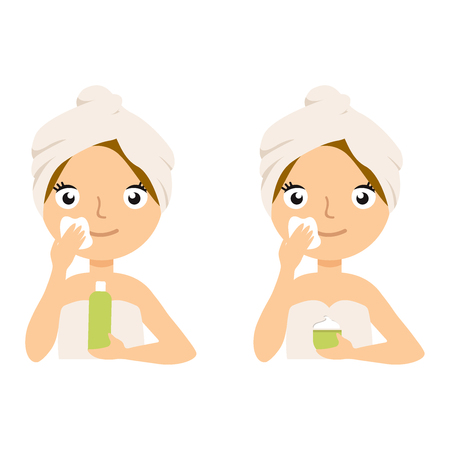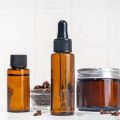Understanding Scalp Serums: What Are They and Why Use Them?
When it comes to achieving healthy, vibrant hair, many Britons are turning their attention to scalp serums—a new generation of haircare that goes beyond the traditional shampoo and conditioner. But what exactly are scalp serums, and how do they differ from standard hair treatments found on the high street? Unlike conventional products that focus primarily on the hair shaft, scalp serums are lightweight, fast-absorbing formulas designed to nourish the scalp directly. This is essential because a healthy scalp provides the foundation for robust hair growth and overall hair vitality.
Incorporating a scalp serum into your British haircare routine offers several unique benefits, from addressing dryness caused by central heating in winter to soothing irritation after exposure to unpredictable UK weather. Many formulas are packed with active ingredients such as niacinamide, hyaluronic acid, or botanical extracts tailored for different needs—whether you’re battling dandruff in Manchester or dealing with oily roots in London. The table below highlights key differences between scalp serums and regular hair treatments:
| Treatment Type | Main Focus | Texture | Application Area | Key Benefits |
|---|---|---|---|---|
| Scalp Serum | Scalp health & nourishment | Lightweight, non-greasy | Directly on scalp | Promotes balanced scalp, reduces flakiness, supports hair growth |
| Regular Conditioner | Hair shaft moisture & smoothness | Creamy, heavier | Mid-lengths to ends | Detangles, softens, adds shine |
| Hair Mask | Deep conditioning for hair strands | Thick, rich | Mainly on lengths & tips | Repairs damage, deeply hydrates dry hair |
If you’re keen on elevating your daily routine with expert-approved solutions that suit the British climate and lifestyle, understanding the role of scalp serums is the first step towards healthier hair from root to tip.
Identifying Your Hair and Scalp Type
Before you can select the ideal scalp serum, it’s crucial to accurately assess both your hair texture and scalp condition. This is especially important in the UK, where fluctuating weather—from damp, chilly winters to humid summers—can significantly impact both your hair and scalp health. Recognising your unique needs will ensure you pick a serum that genuinely addresses your concerns, whether you have fine strands prone to flatness in coastal winds or a dry scalp aggravated by central heating.
Assessing Hair Texture
British hair types vary widely, from straight and silky to curly or coiled. Determining your hair texture involves feeling the thickness of individual strands and noting how your hair reacts to moisture and styling. Fine hair may need lightweight serums that won’t weigh it down, while coarse or curly hair often benefits from richer formulas that provide extra hydration and frizz control.
Common British Hair Types & Suitable Serum Formulas
| Hair Type | Description | Recommended Serum Type |
|---|---|---|
| Fine & Limp | Lacks volume; easily weighed down | Lightweight, volumising serums |
| Thick & Wavy/Curly | Prone to dryness and frizz, especially in humidity | Nourishing, anti-frizz serums with hydrating oils |
| Straight & Medium | Generally balanced but sensitive to product build-up | Clarifying serums with gentle actives |
Evaluating Scalp Condition
Your scalp can be oily, dry, sensitive, or balanced—each requiring different ingredients for optimal care. The UKs cool, wet climate can exacerbate dryness or flakiness, while pollution in urban areas like London may contribute to oiliness or irritation. Assess your scalp after washing: if it feels tight or itchy, you likely have a dry scalp; if it becomes greasy within a day or two, you’re dealing with excess oil production.
Typical UK Scalp Conditions & Recommended Ingredients
| Scalp Condition | Common Signs | Best Ingredients |
|---|---|---|
| Dry/Flaky | Tightness, itchiness, visible flakes (especially in winter) | Aloe vera, hyaluronic acid, oat extract |
| Oily/Greasy | Shiny roots, limpness by end of day (common in city environments) | Tea tree oil, witch hazel, niacinamide |
| Sensitive/Irritated | Redness, stinging after using products or exposure to cold winds | Cica (Centella Asiatica), chamomile, panthenol |
By thoroughly understanding your own hair and scalp characteristics—and considering how typical UK weather might affect them—you’ll be perfectly positioned to choose a scalp serum tailored for real results. In the next section, we’ll explore which key ingredients best address these specific needs.

3. Key Ingredients to Look For Based on Hair Needs
When selecting a scalp serum, understanding which ingredients cater to your specific hair and scalp concerns is essential. British consumers have access to a wide range of targeted serums, but knowing what to look for can make all the difference. Here’s a detailed breakdown of must-have ingredients in scalp serums according to different hair needs, with context on their availability in UK products:
| Hair/Scalp Type | Key Ingredient(s) | Why It Works | Commonly Found in UK Brands |
|---|---|---|---|
| Oily Scalp | Tea Tree Oil | Antibacterial and clarifying, helps regulate sebum production and reduce build-up. | The Body Shop, Neals Yard Remedies |
| Dry or Flaky Scalp | Hyaluronic Acid, Aloe Vera | Hydrates deeply without weighing down hair; soothes irritation. | LOréal Professionnel, Grow Gorgeous |
| Sensitive/Itchy Scalp | Chamomile Extract, Oat Extract | Calms inflammation and reduces itchiness with gentle botanicals. | Aveda, Faith In Nature |
| Thinning Hair/Hair Loss | Caffeine, Biotin, Rosemary Oil | Stimulates blood circulation to follicles and supports healthy growth. | Nioxin, Plantur 39, The Ordinary |
| Dandruff-Prone Scalp | Pyrithione Zinc, Salicylic Acid | Tackles dandruff by controlling yeast and exfoliating dead skin cells. | Head & Shoulders Clinical, Philip Kingsley |
Understanding Ingredient Functionality for UK Consumers
The British market offers both high-street and luxury options that contain these hero ingredients. For instance, tea tree oil is widely available in eco-friendly formulations from brands like Neal’s Yard Remedies. Hyaluronic acid-infused serums have become popular due to the UK’s often variable weather, which can leave scalps parched—especially during winter months. Meanwhile, caffeine-based serums are frequently recommended by UK trichologists for early signs of thinning hair.
Quick Tips for Reading Ingredient Labels
- Always check the first five ingredients listed—these make up the bulk of the formula.
- If you have allergies or sensitive skin, opt for fragrance-free or hypoallergenic products widely available at Boots and other UK chemists.
The Takeaway for British Shoppers
Selecting the right scalp serum hinges on matching key ingredients to your main concern. With a robust offering of targeted formulas in the UK—from Boots to luxury retailers—you’re spoilt for choice when it comes to addressing everything from excess oil to sensitivity and dryness.
4. Expert Tips for Matching Scalp Serums to Common Hair Concerns
When selecting a scalp serum, its essential to address your specific hair and scalp needs. Leading UK trichologists and stylists emphasise the importance of identifying your primary concern—whether its dandruff, thinning hair, or sensitivity—before choosing a product. The British haircare market offers a range of targeted formulations, often influenced by the nations climate and common lifestyle factors.
Advice from UK Experts
UK professionals recommend looking for serums with active ingredients that are both effective and gentle enough for regular use. For instance, if you struggle with persistent dandruff due to the damp British weather, opt for serums containing anti-fungal agents like piroctone olamine or natural alternatives such as tea tree oil. For thinning hair—a frequent concern among both men and women in the UK—formulations enriched with caffeine or biotin can help stimulate the scalp and encourage healthier growth. Sensitive scalps, which are increasingly common due to environmental stressors and hard water found in many British regions, benefit from fragrance-free and hypoallergenic serums containing soothing elements such as aloe vera or oat extract.
Matching Your Concern with the Right Serum
| Concern | Recommended Ingredients | Expert Tip |
|---|---|---|
| Dandruff & Flakiness | Piroctone Olamine, Tea Tree Oil | Look for non-greasy formulas suitable for daily use in humid climates. |
| Thinning Hair | Caffeine, Biotin, Niacinamide | Massage serum into scalp daily to improve blood circulation. |
| Sensitive Scalp | Aloe Vera, Oat Extract, Allantoin | Select fragrance-free options to avoid irritation caused by harsh additives. |
Consider Local Factors
The UKs variable weather and prevalence of hard water can exacerbate scalp issues. Experts suggest incorporating a clarifying wash once a week before applying your chosen serum to ensure maximum absorption and efficacy. Additionally, always patch-test new products behind your ear for 24 hours—a common recommendation among British stylists—to minimise the risk of adverse reactions.
5. How to Use Scalp Serums Effectively
Applying scalp serums correctly is essential for achieving the best results, especially when considering classic British haircare routines. Below, we break down a step-by-step guide tailored for those in the UK, ensuring both effectiveness and ease of integration with your daily rituals.
Step-by-Step Application Guide
- Prep Your Scalp: Begin with freshly washed, towel-dried hair. Using a gentle British shampoo suited to your hair type helps remove product build-up and creates a clean base for the serum.
- Section Your Hair: Divide your hair into manageable sections using a tail comb. This ensures even application, which is particularly helpful if you have thick or curly hair—a common trait among many Brits.
- Apply the Serum: Dispense the recommended amount (usually a few drops) directly onto your scalp. Use the dropper or nozzle provided with most UK serums for precision. Avoid over-applying; more isn’t necessarily better.
- Massage In: Gently massage the serum into your scalp using your fingertips in circular motions. This classic British technique not only aids absorption but also boosts circulation, echoing traditional salon practices across the UK.
- Style as Usual: Allow the serum to absorb before blow-drying or styling. Many British stylists recommend air drying when possible to minimise heat damage.
Frequency and Quantity: What’s Ideal?
| Hair Type | Recommended Frequency | Quantity per Application |
|---|---|---|
| Fine/Thin | 2-3 times weekly | 2-3 drops |
| Normal | Every other day | 3-4 drops |
| Thick/Curly | Up to 4 times weekly | 4-5 drops |
| Sensitive Scalp | 1-2 times weekly | 1-2 drops (patch test first) |
Pairing With Classic UK Haircare Rituals
- Cleansing: Incorporate gentle, sulphate-free shampoos that are popular in Britain to maintain scalp health and avoid stripping away natural oils.
- Treatments: Pair your serum routine with a weekly deep conditioning mask—an established tradition in many British homes—to nourish both scalp and strands.
- Brushing: Opt for a natural bristle brush such as Mason Pearson—a British favourite—to distribute oils evenly after serum application.
- Avoid Overwashing: Many UK experts advise against daily washing; instead, use dry shampoo between washes to keep your scalp fresh without disrupting its natural balance.
A Few Final Tips for British Weather
The unpredictable UK climate can impact both scalp and hair condition. During colder months, consider increasing hydration by selecting serums with hyaluronic acid or glycerine, while in humid weather, lighter formulations can prevent greasiness. By following these expert-approved steps and aligning with time-honoured British haircare habits, you’ll maximise the benefits of any scalp serum tailored to your unique needs.
6. Recommendations: Top Scalp Serums in the UK Market
Choosing the right scalp serum can feel overwhelming with the sheer variety available on British high streets and online. To help you navigate the choices, weve reviewed some of the most popular and emerging scalp serums suited for different hair and scalp types. Whether your scalp is dry, oily, sensitive, or you’re dealing with thinning hair, these recommendations are tailored to meet diverse needs commonly found among UK consumers.
Best-Reviewed Scalp Serums by Hair & Scalp Type
| Product Name | Type | Key Benefits | Available At | Price Range |
|---|---|---|---|---|
| The Ordinary Multi-Peptide Serum for Hair Density | Thinning/Weak Hair | Promotes fuller hair, lightweight formula, suitable for daily use | Boots, Cult Beauty, LookFantastic | £15–£18 |
| Kérastase Specifique Potentialiste Serum | Sensitive/Unbalanced Scalp | Soothes irritation, balances scalp microbiome, non-greasy finish | John Lewis, FeelUnique, Salons Direct | £35–£45 |
| Briogeo Scalp Revival Charcoal + Tea Tree Scalp Treatment Serum | Oily/Flaky Scalp | Cleanses buildup, calms itchiness, natural ingredients | Selfridges, Space NK, Amazon UK | £28–£32 |
| Aveda Invati Advanced Scalp Revitalizer | Mature/Thinning Hair | Reduces hair loss from breakage, invigorates scalp, vegan-friendly | Debenhams, John Lewis, Aveda UK Online | £50–£60 |
| L’Oréal Professionnel Serioxyl Denser Hair Serum | Fine/Limp Hair | Boosts density, easy application dropper, clinically tested results | Superdrug, LookFantastic, Sally Beauty UK | £20–£28 |
| The INKEY List Salicylic Acid Exfoliating Scalp Treatment | Dandruff-Prone/Oily Scalp | Gently exfoliates dead skin cells and excess oil; budget-friendly option | Cult Beauty, Boots Online, ASOS UK | £12–£15 |
Emerging Brands Gaining Popularity in the UK Market
- Noughty Care Taker Scalp Soothing Serum: Free from sulphates and parabens; ideal for those seeking gentler formulations.
- Gallinée Prebiotic Scalp Care Serum: Supports the scalp’s natural bacteria balance; good choice for sensitive skin types.
Tried-and-Tested Advice for Selecting Your Serum:
- If buying in-store (like at Boots or Superdrug), ask for tester samples – many high street shops now offer these on request.
- If ordering online, check for trial sizes or money-back guarantees to ensure suitability before committing to full-size products.
A Final Note on Local Shopping Habits:
The UK market is rich with both global names and homegrown brands. Many salons also carry professional-only serums that may suit specific concerns – don’t hesitate to consult your stylist for recommendations based on your unique hair type. Remember to always read labels and reviews for insight into how a serum performs in real-life British weather conditions!


